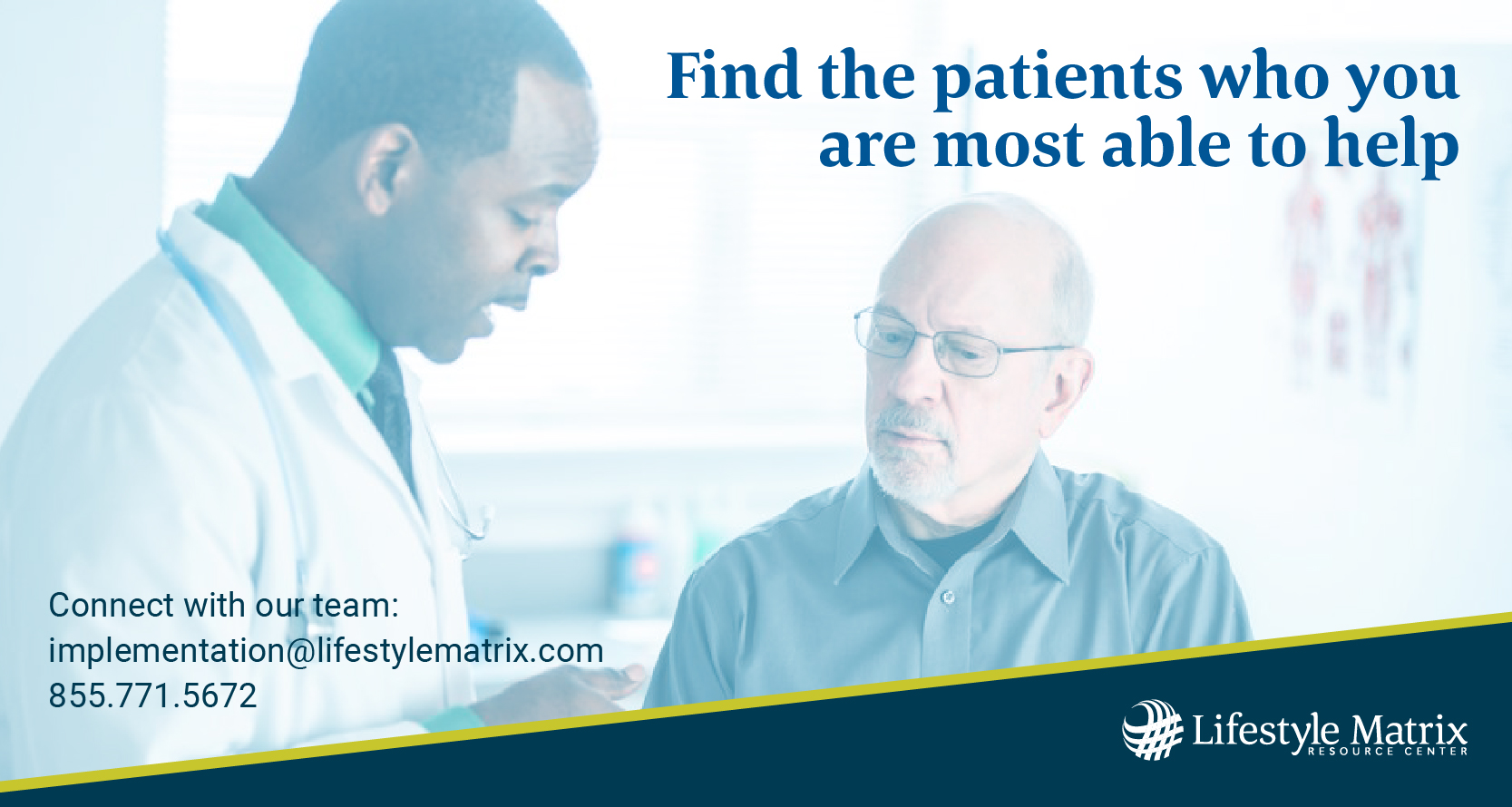Promoting health and vitality is something we all know how to do, yet life can sometimes conspire against us. We get caught in time crunches, food deserts, insomnia vortices and other places where making smart, healthy choices is not always easy, or for that matter, a priority. Yet maintaining good health requires work, a strategy and the occasional checkup and test. Life itself can act as a healing catalyst if we learn how to use it.
Let’s examine some smart choices that will allow us to circumvent common problems. We can look at these according to the four pillars of the WellMatrix Health Resiliency Program:
1. Nutritional Wellbeing
We all know we need a good diet at baseline, but what happens when you are struggling to find a diet that is rich in fiber, fresh fruit and vegetables and unsaturated fats? Consider making your own medical food. Get a shaker and preload it with medical food powder, powdered greens, fiber and even a probiotic. When you are ready, simply add water, shake and voilà! Don’t forget that while shakes offer a quick nutrient solution, it is physically important for us to chew. Finding some raw vegetables will help stimulate your muscles of mastication, your digestive enzymes and serve as good prebiotics. If you are not getting enough non-peak-hour sunshine, add a vitamin D3 supplement. Similarly, if you don’t get enough fatty fish, add a high-quality fish oil supplement. Keep some healthy snacks around such dried fruit, nuts, seeds, and olives, so that next time you are hangry, you avoid grabbing for that sugary snack. Finally, don’t forget that you can order good food choices online. That way you can be smarter about what you order.
2. Physical Wellbeing
We all know that exercise is good for us, but sometimes finding the time to do this is elusive. Remember that healthy centenarians did not usually get there because they were gym rats. They simply placed exercise into their daily regimen. They might have walked to the well to fetch water or had to herd their animals. So, how can we do this in today’s world? Make healthy exercise a fun part of your day. Park your car further away so that you need to walk more. Take the steps instead of the elevator. Carry your bags. Leave some light weights in rooms you spend time, then make a point of doing some simple exercises when you have a free moment. Finally walk for fifteen minutes after each meal. Europeans have been doing this for centuries–in a small study published in Diabetes Care, October 2013, DiPiettro et al showed that diabetics who followed this regimen had smaller blood sugar spikes, with the post dinner walk being the most helpful.
Don’t forget little things like brushing and flossing, or upgrade to a Waterpik® to break the biofilm and an electric toothbrush to lower plaque. It all helps to lower inflammation!
3. Emotional Wellbeing
Stress is ubiquitous. We have developed physiological responses to handle acute and chronic stress. However, recognizing that these responses are not working correctly can be challenging. Conquer your stress. As functional and integrative medicine practitioners, most of us are good at giving patients advice on lowering their stress, yet often forget about ourselves. Here are some tips that might help:
- Don’t resist life. You may feel overwhelmed with workload, insurance reimbursements, staff issues and so much more. Practice gratitude! Every day try to mindfully and seriously see the blessing of helping others. Gratitude greases the wheels of happiness, enabling you to slide through the day with more ease and grace!
- Instead of trying to get your patients out of your office, cherish each interaction and learn from it so that it nourishes you. This breeds a sense of community, which spills over to your staff and family. You don’t want to “give at the office” and then not be able to give at home.
- Monitor yourself for rising stress—frequent headaches, difficulty sleeping, anger outbursts are just some of the symptoms. Don’t be afraid to ask for help. Your own empowerment will help not only you, but your patients and all those around you!
- Get enough sleep. Learn to have your own “turn down” service a few hours before bed. Turn down the stimuli. Switch off your phone, computer, or TV. If you need to use them, consider blue light blocking glasses. Listen to music. Take a warm bath or read a book.
4. Environmental Wellbeing
Environmental toxins come in all shapes and sizes. Here are a few examples to keep in mind:
- Get rid of toxins in your life. Most of us have moved our lives far away from smokers, but how about alcohol? Make sure you are limiting your alcoholic drinks to two per day if you’re male and one per day for females. If you travel a lot, consider adding NAC or glutathione to your daily regimen. Try to avoid drinking and eating from plastic cups and plates.
- Eliminate the emotional toxins in your life! Often easier said than done, you need to confront and deal with the issues that are bringing you down!
- Where you live is very important. The environment you live, work, worship, and play should be free of environmental threats and be places of joy for you and your family!
Use life as therapy and medicine for yourself. It will give you honest feedback!


Steve Amoils is the Co-Medical Director of the Alliance Integrative Medicine (AIM) in Cincinnati, together with his wife Sandi Amoils, MD. He is an Adjunct Assistant Professor
in the Department of Medical Education at the University of Cincinnati and President of the Ohio Chapter of the American Academy of Medical Acupuncture, and has been practicing Functional Medicine since 2000. He has received numerous awards
for his achievements, including America’s Top Doctor in Family Medicine and Cincy Top Doctor yearly since 2007.
Trained in South Africa, London, and then in the United States, Steve is a board-certified family physician. After
completing medical training in South Africa in 1984, he and Sandi spent two years traveling around the world, studying various indigenous medical systems. In 1987 they immigrated to the US, where they ultimately both practiced as family physicians
in Cincinnati. In 1999, at the behest of a large hospital group, they opened Alliance Integrative Medicine to offer patients a comprehensive, personalized, integrative approach to medicine. AIM has been recognized nationally as a leading center
in integrative medicine since 2004, and Dr. Amoils has been a site investigator on three major national studies on integrative medicine. AIM averages approximately 30,000 patient visits per year. Alliance Integrative Medicine offers an accredited
physician fellowship training program in integrative medicine.
Through the nonprofit Integrative Medicine Foundation,
the Amoils are active in research, education and overseeing the Get Well program for the underserved. Steve and Sandi are co-authors of Get Well & Stay Well – Optimal Health through Transformational Medicine.
The book expounds on their philosophy of helping patients transform illness into wellness through the best of conventional medicine, functional medicine and integrative therapeutic options.



